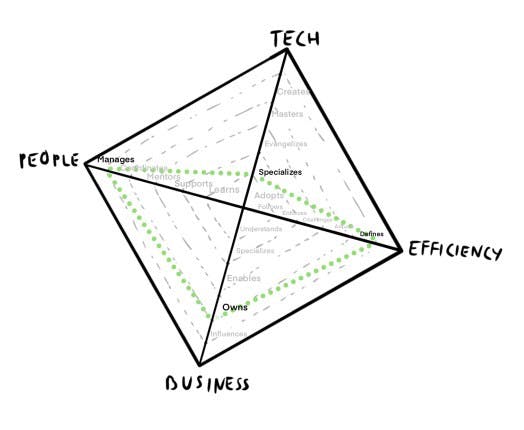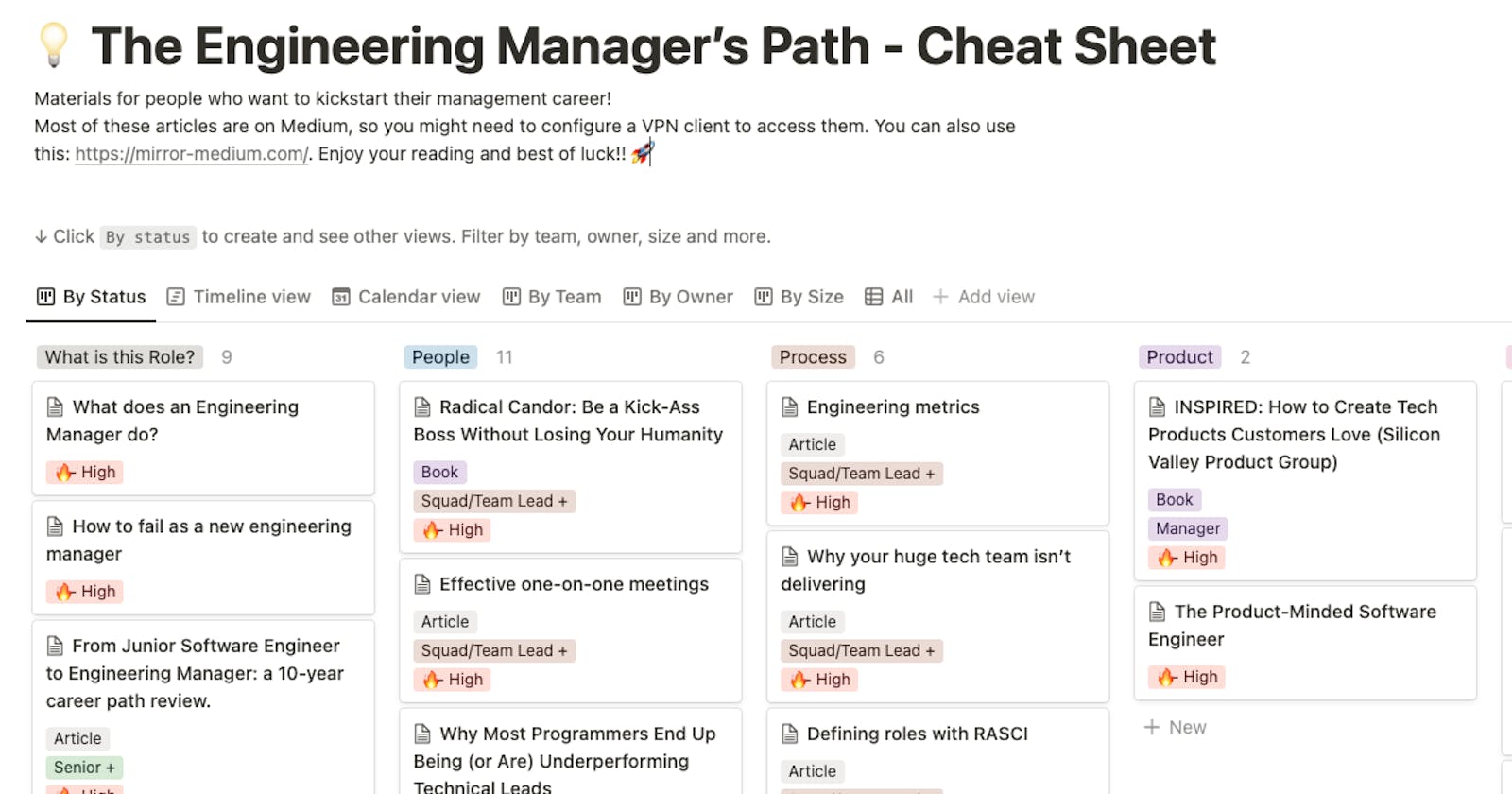
I've recently received a lot of inquiries about the Engineering Manager role, and I feel like there's a lack of a solid and clear understanding of what this role should be doing, what its expectations are, and how to begin pursuing a management career after working as a software engineer for several years.
And indeed, the EM job is different from that of Scrum Master, Project Manager, Tech Lead, and Technical Architect in a number of clear ways. They may share many duties and responsibilities, but ultimately, they should not be alike, and expectations should also differ.
I've been using Pocket (an app and browser extension available on Chrome and Vivaldi) for years to save and categorize articles and useful links. It has some useful features like putting tags, offline reading, and accessibility options for different devices. I have like 500+ articles over there and it helped me a lot to start picking some materials that were helpful for me when I started my journey as an EM at the beginning of 2021.
Over the last few months, I have been sending some of these materials to anyone who was asking me to understand the role and also for anyone who was interested in the switch to management path. This, however, was not sufficiently scalable, and it was never structured enough to be beneficial to a vast number of viewers.
I decided to start using Notion to manage these articles, and to provide an easy way to access some of these materials, with many options to help people understand the main aspects of the management role. I've created a cheat sheet which can be useful to anyone who needs to dig deeper into management roles. You can also find a lot of classification options to distinguish between seniority levels, material types, and importance.

An Engineering Manager should manage individuals in the team (People), define the team’s methods and processes in order to constantly accelerate the teams (Process), and has a perfect knowledge of his/her business field in order to be able to help his team to stay aligned and make the right choices (Product/Project). He should have good technical basics (he/she can sometimes be an expert but it’s not required) allowing him/her to be relevant on best practices and delivery. (Reference: this)
In the shared Notion link, you will notice that articles are organized into columns that correspond to these crucial pillars. You will also discover some introduction materials and a number of other crucial aspects. I will attempt to ensure that this list is updated every one to two months and will share the updates.
Your feedback is essential to helping me develop this model, so please leave a comment below or reach out to me on LinkedIn/Twitter if you have any questions or comments.
page is accessible through this link. Thank you and enjoy your reading.

